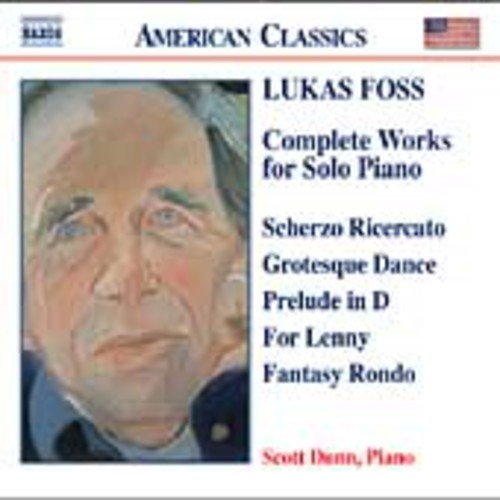Show results for
Deals
- 4K Ultra HD Sale
- Action Sale
- Alternative Rock Sale
- Anime sale
- Award Winners Sale
- Bear Family Sale
- Blu ray Sale
- Blues on Sale
- British Sale
- Classical Music Sale
- Comedy Music Sale
- Comedy Sale
- Country Sale
- Criterion Sale
- Cult Films sale
- Drama Sale
- Electronic Music sale
- Horror Sci fi Sale
- Jazz Sale
- Kids and Family Sale
- Metal Sale
- Music Video Sale
- Musicals on Sale
- Mystery Sale
- Naxos Label Sale
- Page to Screen Sale
- Paramount Sale
- Rap and Hip Hop Sale
- Reggae Sale
- Rock
- Rock and Pop Sale
- Rock Legends
- Soul Music Sale
- TV Sale
- Vinyl on Sale
- War Films and Westerns on Sale

Complete Works for Solo Piano
- Format: CD
- Release Date: 2/22/2005

Complete Works for Solo Piano
- Format: CD
- Release Date: 2/22/2005
- Composers: Lukas Foss
- Performers: Scott Dunn
- Label: Naxos American
- UPC: 636943917923
- Item #: NAX391792
- Genre: Classical
- Release Date: 2/22/2005

Product Notes
Lukas Foss may be regarded as a mirror of twentieth century music, since his works seem more influenced by other composers and trends than influential in their own right. Whether experimenting with neo-Classicism, as in his Two-Part Inventions (4) (1938), the Passacaglia (1940), the Prelude in D (1951), and the Scherzo Ricercato (1954), or dabbling with popular song in his Grotesque Dance (1938) and the Fantasy Rondo (1944), Foss toys with styles and mannerisms with an amused detachment. Ever mindful of his craft but reticent in expression and apparently unconcerned with originality, Foss seems to approach composition with a utilitarian attitude, and his results are quite similar to Hindemith's Gebrauchs music. Even in such late works as the stylistically varied Solo (1981) and the witty For Lenny, Variations on "New York, New York" (1987), Foss seems a distant observer, and writes what is effective without revealing much of his own personality. Pianist Scott Dunn plays these works with a crisp touch and a disciplined control of line, but at no point does he express more than Foss indicates.

